baisakhi festival
Dates
To be AnnouncedLocation
Punjab, India2019 Baisakhi festival in Punjab
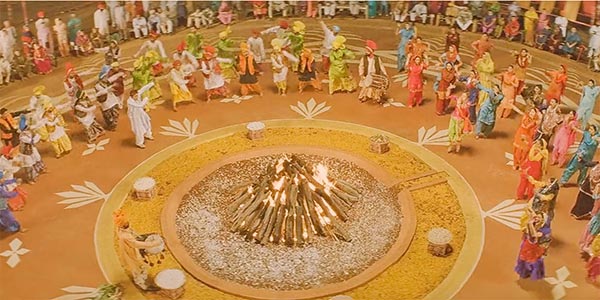
The rich state of Punjab is blessed with rivers and topography that supports farming and agriculture. The five rivers Rabi Beas Chenab Jhelum and Sutlej contribute to the name Punjab which means The Land of five waters. The soil of the land also contributes to the fertility and agriculture of the land. Lastly the people of Punjab and the mixed culture that dwells there makes the state so lively and welcoming. Since, a lot of Punjabis are settled in countries outside India the locals of Punjab welcome guests to Punjab with open arms they understand the western culture and accept it along with showing them the culture of Punjab. This makes Punjab a perfect place for travelers to visit the land is rich in its culture has some really unique traditions and is a home to wonderful people.
You will find amazing food at the dhabas which are usually run by local families where you will get to eat food from the hands of Punjabi mother now the specialty of this Punjabi mother food is that it is loaded with fats you will feel like you have been well fed after the meal Punjabi mothers tend to equate fats in food with love and ensure that their children are well fed and healthy. The culture of Punjab is as rich as it is food the Giddha and Bhangra are world famous and are known to be dances which make everyone want to dance. All of these main features of Punjab are combined and celebrated in the festival of Baisakhi it is a huge festival all over Punjab and celebrates agriculture food and the people of Punjab.
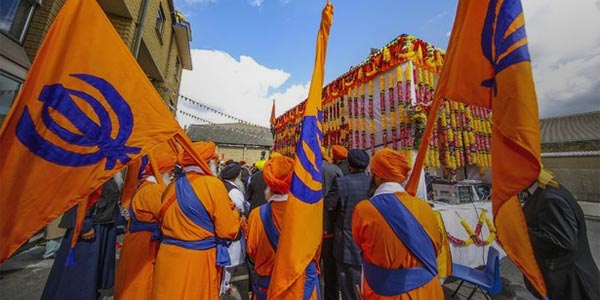
Baisakhi is a festival celebrated either on 13th or 14th April every year. The festival is celebrated across various religions of Punjab and have a great significance to all Punjabis. For the Hindus of Punjab, it is the start of the solar new year, while for the Sikhs it is the day when Guru Gobind Singh formed the Khalsa Panth in the year 1699, while for the farmers of Punjab it is the day to celebrate and be grateful about the harvest of the year. There is joy and happiness throughout Punjab on the day of Baisakhi as the day celebrates multiple festivals for multiple people of Punjab.
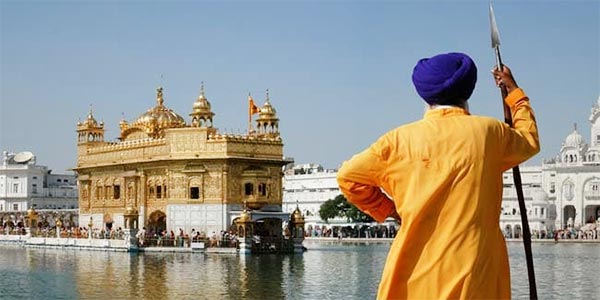
Baisakhi has been celebrated as the harvest festival for a really long time by the Punjabis, but the significance of Baisakhi was established only in the year 1699 for the Sikhs. Guru Gobind Singh commemorated the foundation of the Khalsa Panth on the 30th of March in the year 1699, which was the day of Baisakhi that year. Guru Gobind Singh that day called his followers to Anandpur Sahib, where he took out his sword and asked if there was any brave enough Sikh who was ready to die for his religion and after a lot of hesitation when one went inside the tent, Guru Giving Sing came out with his sword which was now covered in fresh blood. He repeated these four more times and lastly, he came out with all five of those men wearing a turban on their head, these five now were the warriors, they were called the Panj Piare. This commemorated the creation of a new sect of Sikhs who were known to be the pure ones, they followed the Khalsa, these were all baptized in the ceremony of Amrit Sanskar where the Sikhs drink Amrit and there on wear the five Ks of the Sikh religion, namely the Kesh, Kanga, Kara, Kirpan and Kaccha. Since this took place on the day of Baisakhi that year, the Sikhs continue celebrating the day of Baisakhi as the formation of the Khalsa Panth.
Baisakhi for the Hindus is the day when they celebrate the solar new year. As for the farmers it is the day when they celebrate the Harvest of the rabi crops, this day acts as the Thanksgiving Day for the farmers when they pray and thank for the harvest of that year since their lives are dependent on the harvest and it contributes greatly to their livelihood and lifestyle.
Just the way Punjabi weddings are celebrated in a very grand manner, so is the festival of Baisakhi. There are music beats coming out of dhols and nagadas in every gully and corner of Punjab. People go to the Gurdwara in the morning offer their prayers and get blessings. The men and women dress grandly in kurtas and salwar kameez respectively. The colours they wear are very bright. There is a lot of food prepared and many family members gather together to celebrate the festival. Like every other Indian festival, the value of family and togetherness is the main aspect of any festival.
Since the festival revolves around the harvest of the rabi crops, families gather together on their fields and harvest wheat together, this is called the Awat Pauni. The members of the family harvest the crop together with music playing in the background. Bhangra and Giddha are a big part of the festival too, this makes the people more energetic and enthusiastic and keep the folk culture of Punjab alive in the hearts of the people of Punjab. The people chant Jatta aayi Baisakhi and walk around the towns. People eat the Langar together. There are fairs and melas at various places all over the state. At homes, there are delicacies like chole bhature, sarson ka saag and makke ki roti. Achari mutton is made on special occasions only and Baisakhi is one day when you get to eat this achari mutton. Along with that, lassi dominates the household food there are glasses and glasses of lassi made on the day of Baisakhi.
Many Punjabis have settled in foreign countries which makes them celebrate the joy of Baisakhi in countries of UK, Canada, America and more. Punjabi people in these countries gather together in the community and celebrate the festival by making food and wearing traditional clothes. All in all, the festival is a way to celebrate and thank and be grateful for all the things that happened in the previous year. It is an occasion to dance, sing, eat and pray, which gives the farmers a break from their ordinary lives when they are cultivating the crops.
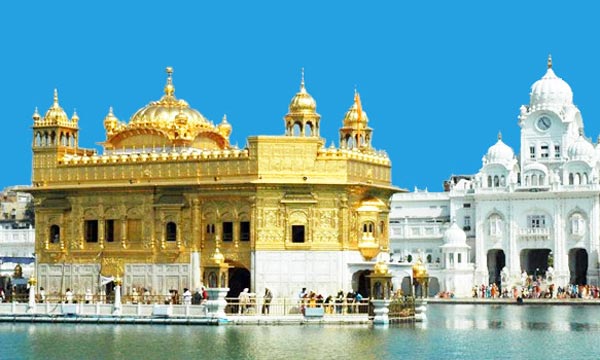
Golden Triangle Tour from Amritsar
Amritsar - Chandigarh
Rishikesh - Haridwar - New Delhi - Jaipur - Agra - Delhi
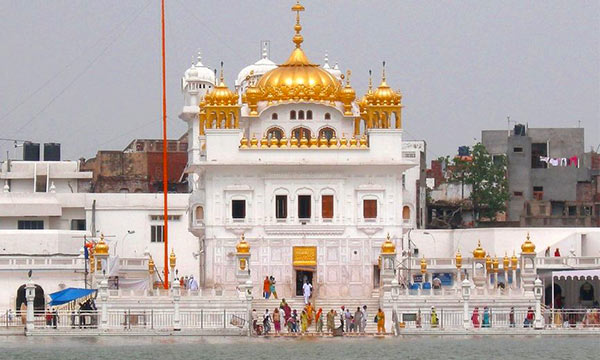
India spiritual tour from Amritsar
Amritsar - Chandigarh
Rishikesh - Haridwar - Delhi - Lucknow - Varanasi - Agra - Jaipur - Delhi
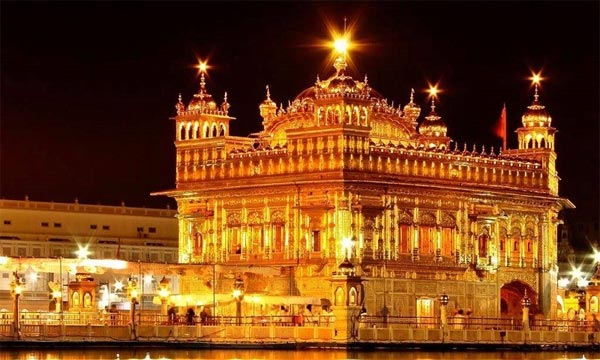
Himachal Tour Package from Amritsar
Amritsar - Dharamsala
Manali - Shimla - Chandigarh - Delhi
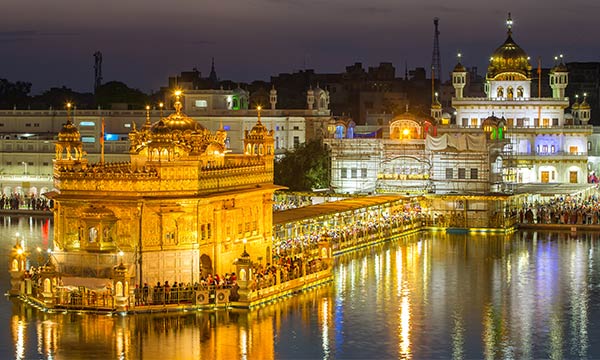
Famous Gurudwara Tour in India
Delhi - Chandigarh
Anandpur - Amritsar - Goindwal - Patna - Varanasi - Agra - Delhi









